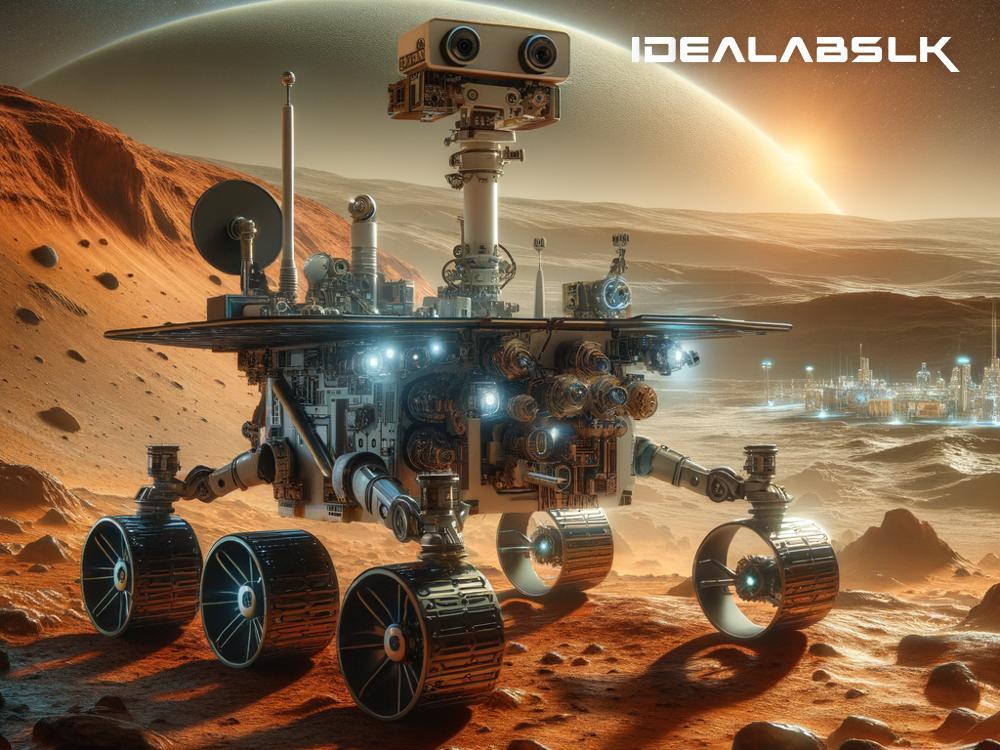Title: Beyond the Stars: How Space Exploration is Rocketing Forward AI and Robotics by 2024
As kids, many of us dreamed of exploring space, discovering alien planets, and maybe even befriending an extraterrestrial or two. While we might not be there just yet, there's an incredible journey happening right now, not with humans, but with robots and artificial intelligence (AI). By 2024, space exploration is set to take AI and robotics to new heights, quite literally, and here's how.
The Unseen Heroes of Space Exploration
First off, let's chat about the unsung heroes of space exploration: robots and AI. These aren't your typical sci-fi movie robots; these are complex machines equipped with AI designed to withstand the harsh environment of space, perform tasks, collect data, and even make decisions. From Mars rovers like Curiosity and Perseverance to satellites orbiting Earth and beyond, these machines are the forefront of our cosmic journey.
Why Space?
You might wonder, "Why is space exploration important for advancing AI and robotics?" Well, it's like asking an athlete to train at high altitudes; the extreme conditions push boundaries and enhance performance. Space is an unforgiving place with no room for error, making it the perfect testing ground for AI and robotics. Challenges such as extreme temperatures, cosmic radiation, and the need for autonomous decision-making push the development of more robust, intelligent, and resilient AI and robotic systems.
Advancement in AI through Space Missions
Looking towards 2024, several missions are set to launch that will further intertwine the fate of AI and robotics with space exploration. For instance, missions to explore the surface of Mars and the icy moons of Jupiter require robots that can navigate and make decisions on their own. This autonomy is crucial since communicating between Earth and distant planets can take minutes to hours, making real-time human control impractical.
This demand has led to a rapid advancement in AI technologies, focusing on machine learning, computer vision, and autonomous navigation. These robots must be able to recognize and avoid obstacles, analyze environmental data to make decisions, and repair themselves if something goes wrong. Each mission provides a unique set of challenges that fuels innovation in AI and robotics, pushing developers to create more advanced and reliable systems.
The Ripple Effect on Earth
The cool part? The advancements in AI and robotics driven by space exploration have a ripple effect, benefiting us here on Earth. For instance, the same AI techniques used for navigating the rugged Martian terrain can be adapted for autonomous vehicles, making them safer and more efficient. The technologies developed for robotic repairs in space can be used to improve robotic surgeries, making them more precise and less invasive.
Moreover, the data collected by these spacefaring robots and the AI used to analyze it have real-world applications, from understanding climate change to improving satellite communication technologies. As we push the boundaries further in space, the boundary of what's possible here on Earth expands as well.
Looking Forward to 2024 and Beyond
As we edge closer to 2024, the line between science fiction and reality continues to blur. The ongoing collaboration between space exploration and advancements in AI and robotics not only brings us closer to understanding the mysteries of the universe but also to developing technologies that could revolutionize our way of life.
In this journey, challenges such as ensuring the ethical use of AI, protecting our space environment, and ensuring that these advancements benefit all of humanity, not just a privileged few, remain paramount. As we proceed, it's crucial that these endeavors are guided by a sense of responsibility and inclusivity.
Final Thoughts
By 2024, the role of space exploration in advancing AI and robotics is poised to create a future where the possibilities are as vast as the universe itself. This journey is not just about reaching new planets but also about leveraging the challenges of space to inspire innovations that could transform our world for the better.
So, let's keep our eyes on the stars and our minds open to the endless possibilities. The next giant leap in AI and robotics is just on the horizon, and it's a journey we're all a part of. Welcome to the future, where the sky is not the limit but just the beginning.

